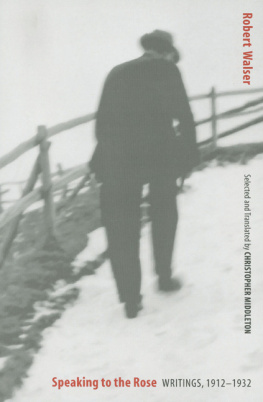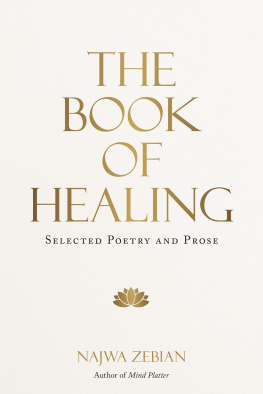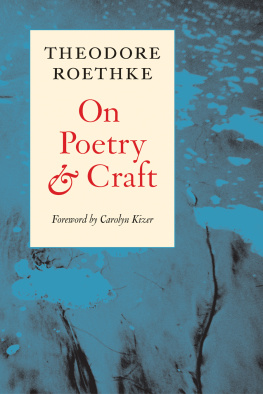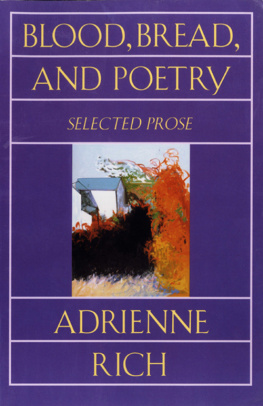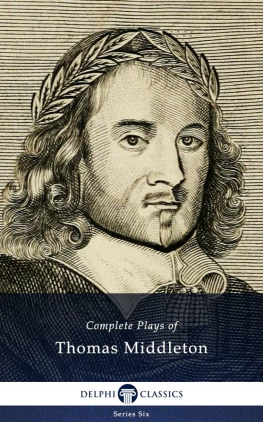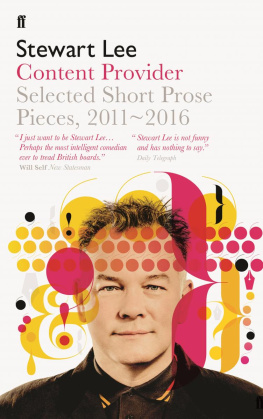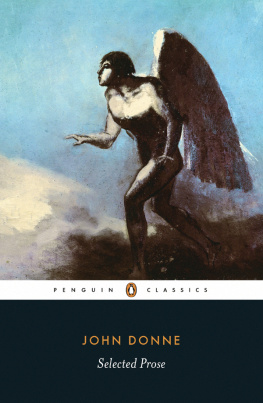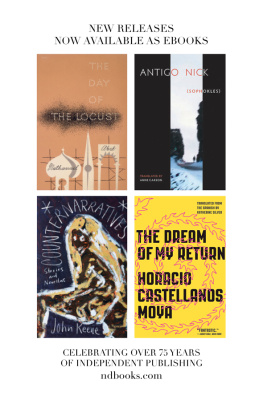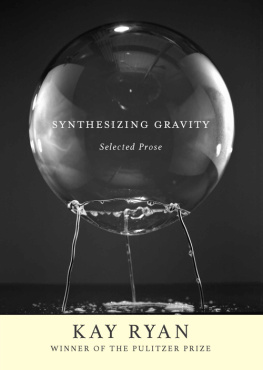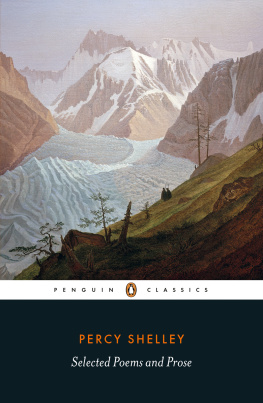Loose Cannons

Recencies Series: Research and Recovery in Twentieth-Century American Poetics
Matthew Hofer, Series Editor
This series stands at the intersection of critical investigation, historical documentation, and the preservation of cultural heritage. The series exists to illuminate the innovative poetics achievements of the recent past that remain relevant to the present. In addition to publishing monographs and edited volumes, it is also a venue for previously unpublished manuscripts, expanded reprints, and collections of major essays, letters, and interviews.
ALSO AVAILABLE IN THE RECENCIES SERIES:
How Long Is the Present: Selected Talk Poems of David Antin edited by Stephen Fredman
Amiri Baraka and Edward Dorn: The Collected Letters edited by Claudia Moreno Pisano
The Shoshoneans: The People of the Basin-Plateau, Expanded Edition by Edward Dorn and Leroy Lucas
Loose Cannons
Selected Prose
Christopher Middleton
Foreword by
August Kleinzahler

2014 by the University of New Mexico Press
All rights reserved. Published 2014
Printed in the United States of America
19 18 17 16 15 14 1 2 3 4 5 6
THE LIBRARY OF CONGRESS HAS CATALOGED THE PRINTED EDITION AS FOLLOWS:
Middleton, Christopher, 1926
[Poems. Selections]
Loose cannons : selected prose / Christopher Middleton.
pages ; cm (Recencies Series: Research and Recovery in Twentieth-Century American Poetics)
ISBN 978-0-8263-5519-5 (pbk. : alk. paper) ISBN 978-0-8263-5520-1 (electronic)
I. Title.
PR6025.I25A6 2014
821.914dc23
2014002209
Cover art courtesy of Philip Trussell
Contents
by August Kleinzahler
by Christopher Middleton
Foreword
These thirty-three prose inventions of Christopher Middleton constitute the fourth pillar of an extraordinary literary oeuvre, the other three being his poetry, translations, and literary essays, each a singular achievement in its respective genre, and each in its way informing the prose inventions, or imaginative prose, or what Middleton himself would refer to as short prose. Whatever one chooses to call these often astonishing miniatures, they are certainly Middletons wildest, most accessible, and most entertaining work and count as some of his very finest writing.
These prose pieces travel somewhere amid the realms of fable, parable, meditation, brief life, character portrait, anecdote, and dream-scape. The mind at work, or more properly put, at play, in these pieces resists categorization, almost by its nature and the nature of its undertaking. Though Middleton, in his own writing on the short prose form, refers to its subversive and ludic force, its animular miniaturism, by which he means animated in a very particular sense (deriving from Paracelsus), where revery and animation mix in a kind of hypnogogic condition to produce heightened imaginative and unexpected constructs in miniature. Subversive and ludic, along with liminal and disruptive, are his favored terms in describing the kinds of literature which most engage him.
Middleton identifies certain examples of the short prose form he himself works within as perspectival antigrams and metaphysical cliff-hangers, for that latter citing, among other works, Franz Kafkas An Imperial Message and Jorge Luis Borges Parable of Palace. His own inventions, in their distinctive methods and tonalities, echo those two authors as well as scores of others, including Kenneth Patchen, Alfred Jarry in his pataphysical forays, and Robert Walser in his short prose.
Here is Middleton, from his Introduction to an Unpublished Anthology of Short Prose:
The animular miniaturism of short prose... secretes a subversive force... as well, a ludic [playful] force. Its loophole procures views, in anomalous perspectives, upon worlds, often vast, other and complex. Its ludic character, sifting from the billow of language a few aleatory particles, may also align those particles in such a way as to suggest tensions at large in universal life.... Some modern short prose writings, too, insofar as they gainsay predictable literary conventions... might be called perspectival antigrams. These are enigmas or metaphysical cliff-hangers.... In the pregnancy of these antigrams, a naive attention of curiosities of nature, as to outlandish freaks of behavior... has been interiorized and subtilized into crystalline intelligence fathoming its language at outer limits of the imaginable.
These prose pieces reveal the illuminating power of lyrical imaginationa subject Middleton has written on brilliantly and in depthunderstood as a wild free particle, one that is resistant by definition to being contained and, quoting Loren Eiseley, enjoys the rare freedom of the particle to do what most particles never do.
By which Middleton means, I think, to actively discover places or moments outside the customary or habituated orbits of traditional literary practice, places and moments charged by the primal and unpredictable sources of lyrical expression, be it short, imaginative prose or poetry or birdsong. In order to get there, or be available to those root impulses, during the course of which one deciphers the code in which the nervous system expresses itself while communing with the world involves a kind of struggle or dance of the mind straining against horizons which the will imposes.
The serious reader will have an exhilarating time of it tracking Middletons dance of the intellect (to use Pounds term) as he strains with his own, very particular, fierce delight against those same horizons.
August Kleinzahler
Prologue
In view of its worldwide flourishing for the last sixty years or so, it should by now be recognized that short prose differs from the short story and the prose poem. Even then, due to its dynamics and varieties, short prose is not easy to pin down categorically. Its sources, too, are many. Just think of Gesta Romanorum, of writings by John Earle and of Ben Jonson, of Pascal, of character portraits and aphorisms, of the extraordinary Lichtenbergall the way to Kafka, to Kenneth Patchens Aflame and Afun of Walking Faces.
The germ of short prose has probably been in a constant interior metamorphosis, even allowing for pressure from time and milieu. We could think of it as a resistance to the tendency of written prose to prolong itself, to expand. How obvious, but it brings us to the concept of an antigram, a variety of imaginative writing which revolts against and may reverse the programmatic. I discover grounds enough for thinking that short prose should enshrine something not-said, a hiatus, a vestige of mysteryMany a fervent and delicate friendship has been devastated by the opening of a rose (Chamfort).
The germ grows, as it must. The art of short prose would then provide for its keeping its vestige of mystery more or less in evidence. The antigram calls for (and should arouse) the most scrupulous thrift, panache, and refinement in writing as such. Beautiful shafts of short prose (Russian, Polish, German) have galled the political police. In its narrative form it has condensed the histories of South America.
It is from such speculation about this secret genre, which lurks between the paving stones of established literary discourse, that my workings took their departure. Few enough are really short; beauty is exuberance.
Next page

